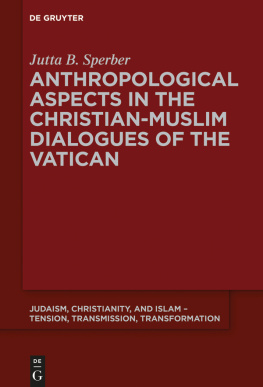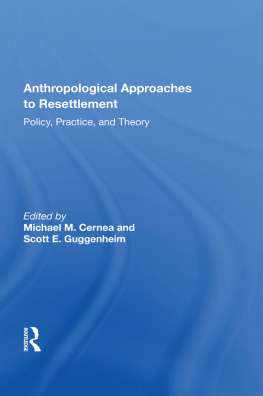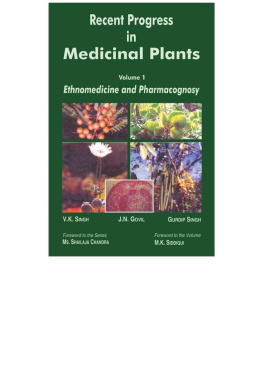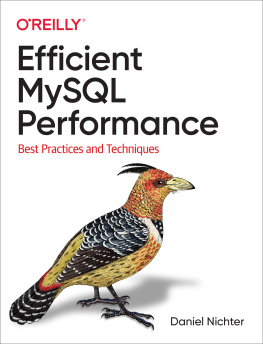First published 1992 by Gordon and Breach Science Publishers S.A.
Published 2021 by CRC Press
Taylor & Francis Group
6000 Broken Sound Parkway NW, Suite 300
Boca Raton, FL 33487-2742
1992 by Taylor & Francis Group, LLC
CRC Press is an imprint of Taylor & Francis Group, an Informa business
No claim to original U.S. Government works
ISBN 13: 978-2-88124-530-5 (hbk)
ISBN 13: 978-2-88124-529-9 (pbk)
This book contains information obtained from authentic and highly regarded sources. Reasonable efforts have been made to publish reliable data and information, but the author and publisher cannot assume responsibility for the validity of all materials or the consequences of their use. The authors and publishers have attempted to trace the copyright holders of all material reproduced in this publication and apologize to copyright holders if permission to publish in this form has not been obtained. If any copyright material has not been acknowledged please write and let us know so we may rectify in any future reprint.
Except as permitted under U.S. Copyright Law, no part of this book may be reprinted, reproduced, transmitted, or utilized in any form by any electronic, mechanical, or other means, now known or hereafter invented, including photocopying, microfilming, and recording, or in any information storage or retrieval system, without written permission from the publishers.
For permission to photocopy or use material electronically from this work, please access www.copyright.com (http://www.copyright.com/) or contact the Copyright Clearance Center, Inc. (CCC), 222 Rosewood Drive, Danvers, MA 01923, 978-750-8400. CCC is a not-for-profit organization that provides licenses and registration for a variety of users. For organizations that have been granted a photocopy license by the CCC, a separate system of payment has been arranged.
Trademark Notice: Product or corporate names may be trademarks or registered trademarks, and are used only for identification and explanation without intent to infringe.
Visit the Taylor & Francis Web site at
http://www.taylorandfrancis.com
and the CRC Press Web site at
http://www.crcpress.com
Some of the essays in this book were first published in Volume 13, Numbers 1-2 of the journal Medical Anthropology.
Cover: Mud offerings to the god Shiva at the Suriya Temple near Ujire, South Kanara District, Karnataka, India. Offerings represent vows fulfilled in contexts of uncertainty. Boons include regained health, fertility, completed house construction, crop abundance, and business success.
Library of Congress Cataloging-in-Publication Data
Anthropological approaches to the study of ethnomedicine / edited by Mark Nichter.
p.cm.
an expanded collection of essays originally organized for a special edition of the journal Medical anthropology, volume 13 (1-2) 1991Pref.
Includes bibliographical references.
1. Folk medicine. 2. Medical anthropology. I. Nichter, Mark.
GR880.A8 1990
By M. Nichter
Ten essays and a critical commentary highlighting major themes and suggesting avenues of further investigation comprise this collection. The essays draw upon ethnographic research in Central and South America, the Caribbean, South and Southeast Asia, and Africa. Individual essays discuss the importance of systematically collecting data on measures of healing efficacy, the prevalence of folk illnesses, and the distribution of knowledge about illness attributes; the negotiation and instantiation of illness identities; the power of discourse to produce as well as cure affliction; metamedical discourse as moral commentary; linkages between medico-religious institutions, models of self, power, and the state; and the relationship between ethnomedical research and anthropological studies of the body, gender relations, self, and Other. The essays are divided into four sections focusing on (1) epidemiological approaches to the study of ethnomedicine; (2) discursive practices in the context of healing; (3) the body, state, and production of medico-religious knowledge; and (4) illness as metaphor as well as vehicle for self expression.1
Before presenting these ten essays, I would like to address two fundamental issues influencing the current state of ethnomedical scholarship. The first relates to the scope of ethnomedical studies and the second to the construction of Other as it influences the presentation of ethnomedical data.2
Ethnomedical inquiry is multidimensional and metamedical. It is based on the interpretation of bodily experience as well as the embodiment of ideology, discourse as well as disease, accommodation as well as resistance, and healing as well as curing. Juxtaposed to medical anthropology which often has an applied agenda, ethnomedical inquiry is less guided by pragmatic interests such as the transfer of knowledge or the evaluation of health-related behavior in terms of public health criteria. Ethnomedicine, as the organizing theme for this volume, is broadly conceived. It entails a study of the full range and distribution of health related experience, discourse, knowledge, and practice among different strata of a population; the situated meaning the aforementioned has for peoples at a given historical juncture; transformations in popular health culture and medical systems concordant with social change; and the social relations of health related ideas, behaviors, and practices.
All too often, ethnomedicine is simplistically compartmentalized as a subfield of medical anthropology, delimited to the study of folk illnesses, traditional medical systems, herbal remedies, and healing rituals.3 While these subjects are central to ethnomedicine, they are points of departure, not the focus of a fixed gaze. Ethnomedicine is not limited to the study of medical traditions. It is more than the rarified or privileged study of the spectacular or the quintessential, be this in the form of exotic healing rituals, surgical procedures, or cultural bound syndromes (Kleinman 1980).4 Ethnomedicine is grounded in the study of everyday life, perceptions of the normal and natural, the desirable and feared, and that form of embodied knowledge known as common sense as it emerges in efforts to establish or reestablish health as one aspect of well-being. Ethnomedical inquiry entails the study of how well-being and suffering are experienced bodily as well as socially, the multivocality of somatic communication, and processes of healing as they are contextualized and directed toward the person, household, community and state, land and cosmos.5 Ethnomedicine also entails a study of the afflicted body as a space where competing ideologies are contested and emergent ideologies are developed through medico-religious practices and institutions which guide the production of knowledge.









